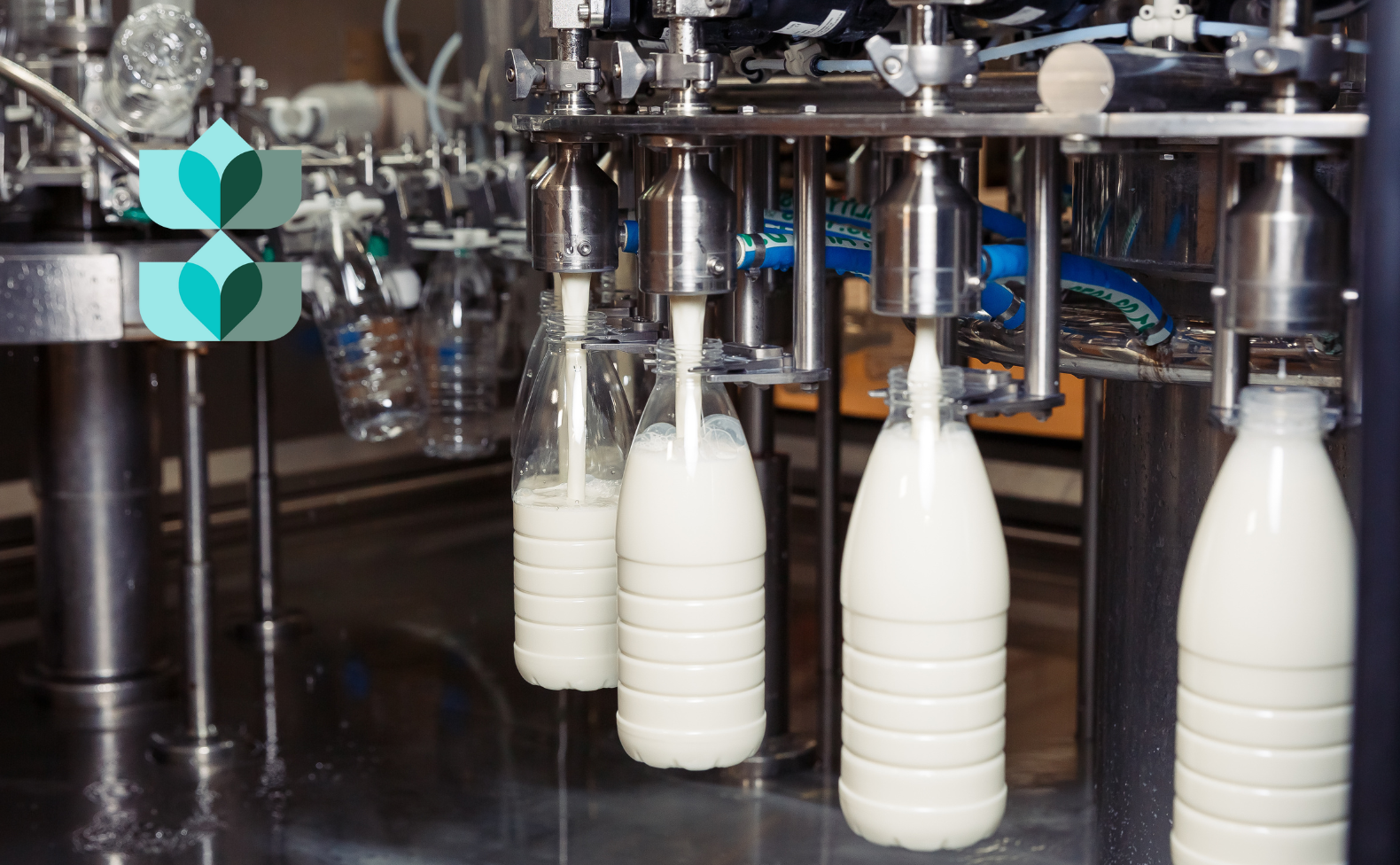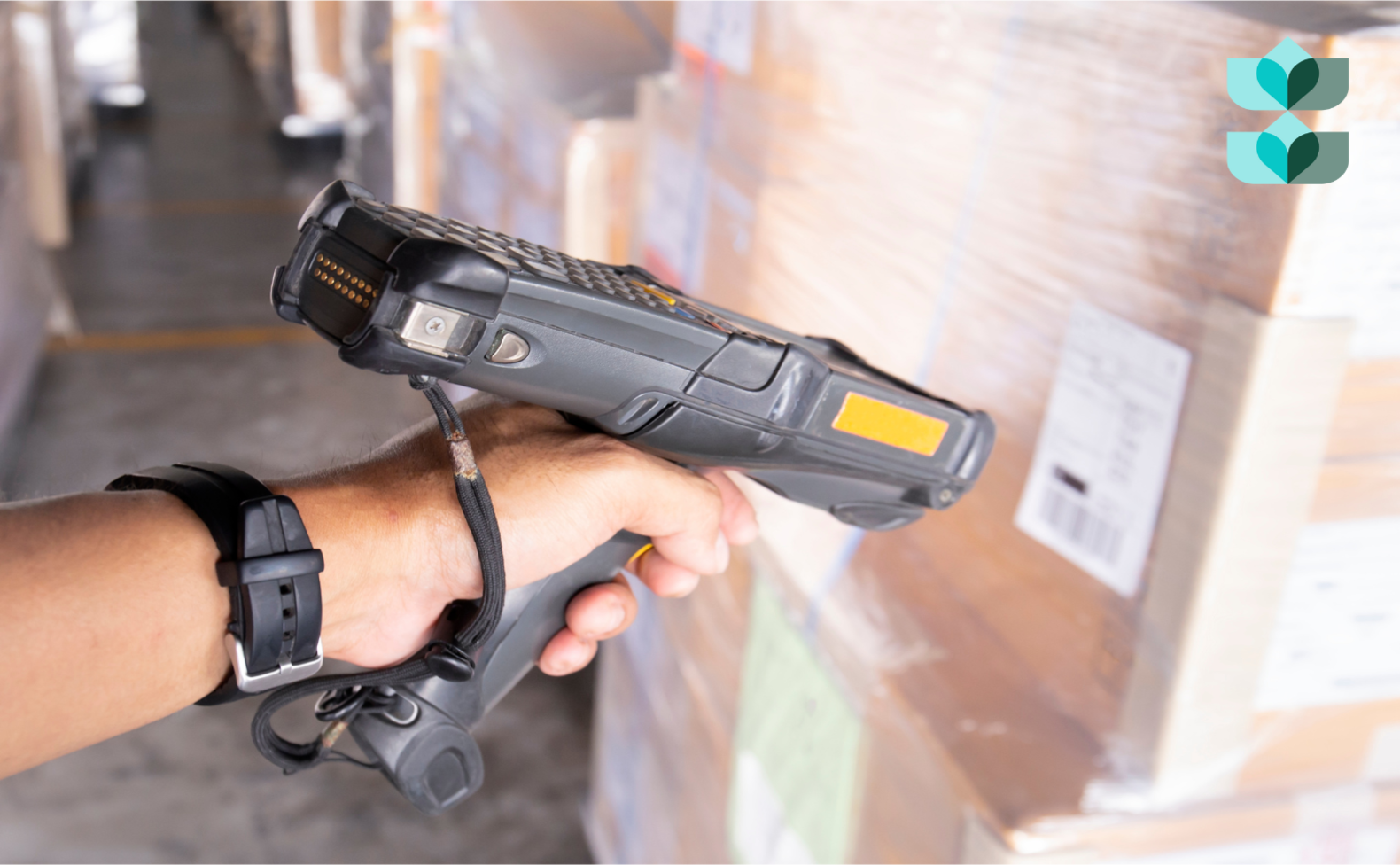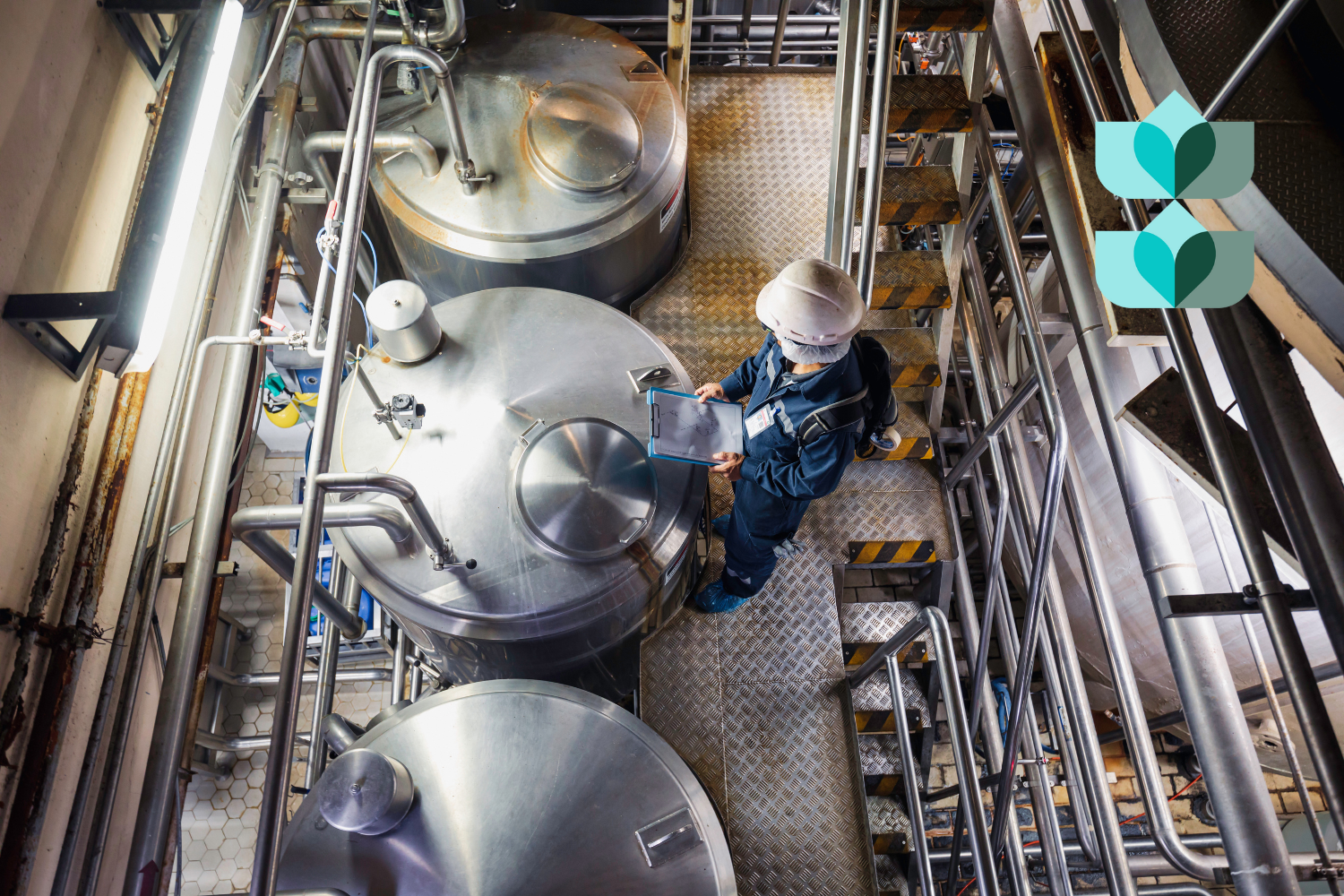Enterprise Resource Planning (ERP) systems have become integral to modern businesses across various industries. The beverage industry has witnessed a significant transformation in recent years due to the implementation of ERP systems.
These powerful software solutions have revolutionized how beverage companies manage operations, streamline processes, and make informed decisions. This article delves into how ERP systems have revolutionized the beverage industry, highlighting their impact on production, supply chain management, inventory control, quality assurance, and overall business efficiency.
Enhanced Production Efficiency:
One of the primary ways ERP systems have revolutionized the beverage industry is by optimizing production processes. ERP systems offer a centralized platform that enables manufacturers to integrate and streamline their production activities, from planning and scheduling to execution and monitoring.
ERP systems improve production efficiency, reduce waste, and minimize production costs by automating and digitizing various tasks, such as recipe management, batch tracking, and equipment maintenance. Real-time data integration allows managers to monitor production performance, identify bottlenecks, and make data-driven decisions to enhance productivity and meet customer demands.
Streamlined Supply Chain Management:
The beverage industry relies heavily on an efficient and well-managed supply chain to ensure the timely delivery of raw materials and finished products. ERP systems provide beverage companies with end-to-end visibility into their supply chain, enabling them to optimize procurement, inventory management, and logistics.
With integrated modules for demand forecasting, vendor management, and order processing, ERP systems facilitate better coordination between suppliers, manufacturers, distributors, and retailers. This streamlined supply chain management improves order fulfillment, reduces lead times, minimizes stockouts, and enhances customer satisfaction.
Effective Inventory Control:
Inventory management is a critical aspect of the beverage industry, as it involves managing perishable goods, maintaining optimal stock levels, and minimizing wastage. ERP systems provide real-time visibility into inventory levels, enabling beverage companies to track and manage their stock more effectively.
With features such as barcode scanning, lot tracking, and expiration date monitoring, ERP systems help streamline inventory control processes, reduce the risk of stockouts and overstocking, optimize storage space, and minimize inventory holding costs. Moreover, ERP systems can integrate with other systems, such as point-of-sale (POS) terminals, to update inventory records in real-time and ensure accurate stock information across the entire organization.
Quality Assurance and Compliance:
Maintaining high product quality and adhering to regulatory compliance are critical factors in the beverage industry. ERP systems ensure product quality and safety by providing robust quality control and compliance management capabilities.
These systems can enforce standard operating procedures (SOPs), track product quality throughout production, and manage quality inspections and certifications. By automating quality control workflows, capturing quality data, and facilitating real-time analysis, ERP systems enable beverage companies to promptly identify and rectify quality issues, minimize product recalls, and comply with industry regulations and standards.
Data-Driven Decision-Making:
Data is a valuable asset in today's business landscape, and ERP systems empower beverage companies with data-driven decision-making capabilities. These systems capture and consolidate data from various sources, such as production, supply chain, sales, and financials, into a single, unified database.
ERP systems provide managers with real-time insights into key performance indicators (KPIs) and business metrics through intuitive dashboards, reporting tools, and analytics modules. By leveraging these insights, beverage companies can make informed decisions, identify growth opportunities, optimize processes, and drive continuous organizational improvement.
Improved Collaboration and Communication:
Effective collaboration and communication are crucial for success in the beverage industry, where multiple teams and departments must work together seamlessly. ERP systems facilitate collaboration by breaking down information silos and fostering cross-functional communication.
With centralized data repositories, document management capabilities, and workflow automation, ERP systems enable employees to access relevant information, collaborate on tasks, and share insights across the organization. This streamlined communication enhances productivity, reduces errors, and fosters a culture of teamwork and innovation.
Scalability and Adaptability:
The beverage industry is dynamic and subject to frequent market changes, evolving customer preferences, and new product introductions. ERP systems offer scalability and adaptability to meet the changing needs of beverage companies. ERP systems can scale operations seamlessly by expanding production capacities, adding new product lines, or entering new markets.
These modular and configurable systems allow businesses to tailor them to their specific requirements and integrate additional functionalities as needed. As a result, beverage companies can respond quickly to market demands, stay competitive, and drive growth.

What Issues Do Beverage Companies Without a Proper ERP System Experience?
Enterprise Resource Planning (ERP) systems have become an essential tool for businesses across various industries, including the beverage sector. While ERP systems offer numerous benefits, many beverage companies still operate without implementing such systems. This article explores the challenges faced by beverage companies that do not have an ERP system in place. These challenges hinder operational efficiency, growth, and competitiveness, from inefficient processes and data fragmentation to a lack of real-time insights and limited scalability.
Fragmented Data Management:
One of the significant challenges beverage companies face without an ERP system is fragmented data management. Without a centralized system, data is typically scattered across multiple spreadsheets, standalone software applications, and paper-based records. This fragmented data leads to inconsistencies, duplication, and errors, making obtaining a single source of truth difficult.
Without a unified view of data, beverage companies struggle to analyze information effectively, make informed decisions, and respond quickly to market changes. Furthermore, the manual effort required to consolidate data from disparate sources is time-consuming and prone to human error.
Inefficient Processes and Workflow:
The absence of an ERP system often results in inefficient processes and workflow within beverage companies. Tasks that could be automated, such as order processing, inventory management, and production planning, are typically performed manually, leading to delays, errors, and inefficiencies.
Paper-based processes and reliance on manual data entry increase the risk of data entry errors, misplaced documents, and slower response times. Without streamlined workflows and automation, beverage companies face challenges in meeting customer demands, managing production schedules, and ensuring timely delivery.
Lack of Real-Time Insights:
Real-time insights are critical for making informed decisions and adapting to dynamic market conditions. However, beverage companies without an ERP system struggle to access real-time data and insights. Without a centralized system, managers must rely on manual data gathering and analysis, which is time-consuming and prone to delays. Without real-time visibility into inventory levels, sales performance, and production data, beverage companies find it challenging to respond promptly to changing customer demands, optimize inventory levels, and make strategic business decisions.
Ineffective Inventory Management:
Inventory management is a crucial aspect of the beverage industry, and companies without an ERP system often struggle to manage their inventory effectively. Without a centralized system, inventory data is fragmented and often inaccurate. Beverage companies may face challenges in tracking stock levels, monitoring expiration dates, and preventing stockouts or overstocking. Manual inventory management processes increase the risk of errors, leading to higher carrying costs, inefficient use of storage space, and difficulties in meeting customer demands.
Limited Supply Chain Visibility:
Beverage companies without an ERP system often lack visibility and control over their supply chain. Manual and disconnected processes make it difficult to track the movement of raw materials and finished goods throughout the supply chain. This lack of visibility results in delays in procurement, inefficiencies in order fulfillment, and difficulties in managing vendor relationships. Without real-time insights into supplier performance, production schedules, and demand forecasts, beverage companies face challenges in optimizing their supply chain operations and meeting customer expectations.
Compliance and Regulatory Challenges:
The beverage industry is subject to various compliance and regulatory requirements, including safety standards, labeling regulations, and quality control measures. Without an ERP system, beverage companies may find ensuring compliance and meeting industry regulations challenging. Manual record-keeping and document management processes increase the risk of non-compliance, leading to penalties, product recalls, and damage to the brand's reputation. Furthermore, without integrated quality control processes, tracking and maintaining product quality throughout the production cycle becomes difficult.
Limited Scalability:
As beverage companies grow and expand, their existing systems and processes may become insufficient to handle increased volumes and complexities. Without an ERP system, scaling up operations becomes challenging.
Manual processes and disparate systems lack the flexibility and scalability to support business growth. Beverage companies may struggle to integrate new production facilities, manage multiple locations, and expand their product portfolios. The absence of an ERP system hampers their ability to respond quickly to market opportunities and limits their scalability potential.
Poor Collaboration and Communication:
Effective collaboration and communication are crucial for success in the beverage industry. However, companies without an ERP system often struggle with fragmented communication channels and a lack of collaboration tools. Teams in different departments may work in isolation, leading to miscommunication, delays in decision-making, and reduced productivity. The absence of a centralized system hinders cross-functional collaboration, sharing of information, and real-time updates. This lack of collaboration adversely affects the overall efficiency and agility of the organization.
Beverage companies without an ERP system face numerous challenges hindering operational efficiency, growth, and competitiveness. Fragmented data management, inefficient processes and workflows, lack of real-time insights, ineffective inventory management, limited supply chain visibility, compliance and regulatory challenges, limited scalability, and poor collaboration and communication are some of the key challenges these companies face.
Implementing an ERP system can help overcome these challenges by providing a centralized platform for data management, streamlining processes, enabling real-time insights, optimizing inventory management, improving supply chain visibility, ensuring compliance, facilitating scalability, and enhancing collaboration and communication. By embracing ERP technology, beverage companies can drive operational excellence, achieve cost savings, improve customer satisfaction, and position themselves for sustainable growth in a dynamic market environment.

What Sort of Beverage Companies Can Benefit from Integrating An ERP Solution?
ERP systems can benefit various beverage companies, regardless of their size or specific subsector within the industry. Here are some examples:
Breweries and Craft Beer Companies:
Breweries, including craft beer companies, can benefit from ERP systems to streamline their production processes, manage recipes and ingredients, track batch production, and optimize inventory management. ERP systems give breweries real-time visibility into their operations, enabling them to manage production schedules, track raw material usage, monitor quality control, and analyze sales data. With the ability to integrate with POS systems and distribution channels, ERP systems help breweries manage their supply chain, track sales performance, and ensure timely delivery to retailers and customers.
Wineries and Vineyards:
Wineries and vineyards can leverage ERP systems to manage their complex production processes, including grape harvesting, fermentation, aging, and bottling. ERP systems enable wineries to track vineyard operations, monitor grape quality, manage wine blending and aging processes, and optimize inventory management.
With integrated compliance management and regulatory reporting modules, ERP systems help wineries ensure adherence to industry standards and track traceability throughout the production and distribution process. Additionally, ERP systems provide wineries with real-time insights into sales and customer preferences, enabling targeted marketing campaigns and better demand forecasting.
Distilleries and Spirits Manufacturers:
Distilleries and spirits manufacturers can use ERP systems to manage their production processes, including distillation, maturation, blending, and bottling. ERP systems provide comprehensive batch tracking capabilities, enabling distilleries to monitor the production process, including raw material usage, alcohol content, and aging duration. With integrated inventory management features, ERP systems help distilleries optimize stock levels, track barrel inventory, and manage packaging materials. Furthermore, ERP systems facilitate compliance management by ensuring adherence to regulations, such as proofing and labeling requirements, and enable real-time reporting and traceability.
Soft Drink and Beverage Manufacturers:
Soft drink and beverage manufacturers, including carbonated drinks, juices, energy drinks, and functional beverages, can benefit from ERP systems to streamline their production processes, manage recipes, optimize inventory control, and ensure quality assurance. ERP systems enable manufacturers to track ingredients and formulations, manage batch production, monitor quality control parameters, and optimize production schedules. With integrated demand forecasting and sales management modules, ERP systems help beverage manufacturers analyze market trends, manage customer orders, and optimize distribution logistics. Additionally, ERP systems aid in compliance management, ensuring adherence to labeling requirements and regulations specific to the beverage industry.
Bottling and Packaging Companies:
Bottling and packaging companies play a critical role in the beverage industry. ERP systems can help these companies optimize their operations by managing packaging inventory, tracking production schedules, and ensuring efficient order fulfillment. With integrated features for warehouse management, ERP systems enable bottling and packaging companies to track packaging materials, manage stock levels, and streamline order processing. Additionally, ERP systems provide real-time visibility into production and supply chain operations, facilitating better coordination with beverage manufacturers and ensuring on-time delivery to customers.
ERP systems can benefit various beverage companies, including breweries, wineries, distilleries, soft drink manufacturers, and bottling and packaging companies. By providing comprehensive features for production management, inventory control, quality assurance, supply chain optimization, compliance management, and real-time insights, ERP systems empower beverage companies to enhance operational efficiency, improve decision-making, ensure regulatory compliance, and drive growth. Regardless of the subsector within the beverage industry, implementing an ERP system can help companies streamline their processes, gain visibility into their operations, and achieve a competitive edge in the dynamic and evolving beverage market.

What's The Best ERP Solution for the Beverage Industry?
Inecta, as a provider of ERP solutions, offers numerous benefits and is an excellent choice for beverage companies needing an ERP system. Here are some reasons why Inecta is a great choice for beverage companies:
Industry-Specific Expertise:
Inecta specializes in providing ERP solutions for the beverage industry. They understand the unique challenges, requirements, and processes specific to beverage companies, including breweries, wineries, distilleries, and soft drink manufacturers. With their industry-specific expertise, Inecta can tailor their ERP solutions to meet the specific needs of beverage companies, ensuring that the system aligns with industry best practices and addresses the unique complexities of the beverage sector.
Comprehensive Functionality:
Inecta offers ERP solutions with comprehensive functionality that covers all aspects of beverage company operations. From production management and recipe formulation to inventory control, supply chain optimization, quality control, and compliance management, Inecta's ERP system encompasses the key functionalities required by beverage companies. The system is designed to streamline processes, enhance efficiency, and provide real-time insights to support informed decision-making.
Batch Tracking and Quality Control:
In the beverage industry, batch tracking and quality control are crucial. Inecta's ERP system includes robust batch-tracking capabilities, allowing beverage companies to track and trace ingredients, production lots, and packaging materials throughout the supply chain. This enables quick identification of issues, facilitates necessary recalls, and ensures compliance with regulatory requirements. The system also supports quality control processes, enabling beverage companies to monitor quality parameters, perform quality checks, and enforce standard operating procedures to maintain product consistency and adhere to industry standards.
Supply Chain Management:
Effective supply chain management is vital for beverage companies. Inecta's ERP system offers comprehensive supply chain management functionality, including demand forecasting, procurement, vendor management, order processing, and logistics optimization. The system provides real-time visibility into the supply chain, enabling beverage companies to optimize inventory levels, reduce lead times, improve order fulfillment, and enhance collaboration with suppliers, distributors, and retailers. This helps ensure timely delivery of products, reduce costs, and improve overall customer satisfaction.
Regulatory Compliance:
Compliance with industry regulations and standards is crucial in the beverage industry. Inecta's ERP system includes compliance management features that help beverage companies meet regulatory requirements.
The system can facilitate the management of labeling regulations, quality control checks, and reporting obligations. With integrated compliance functionalities, beverage companies can ensure that their products meet safety standards, adhere to labeling requirements, and fulfill regulatory obligations, reducing the risk of penalties, recalls, and reputational damage.
Scalability and Flexibility:
As beverage companies grow and evolve, scalability and flexibility become essential. Inecta's ERP system is scalable and can accommodate the expanding needs of beverage companies. The system can adapt to changing business requirements by adding new product lines, expanding production facilities, or entering new markets. Inecta's ERP solution is modular and configurable, allowing beverage companies to customize and expand the system, ensuring that it supports their growth and evolving business needs.
Customer Support and Implementation Expertise:
Inecta provides robust customer support and implementation expertise to ensure a smooth transition to their ERP system. Their team of experts understands the challenges of implementing an ERP system and works closely with beverage companies to guide them through the implementation process. They provide training, support, and ongoing assistance to ensure that beverage companies fully leverage the capabilities of the ERP system and maximize its benefits.
Inecta is a great choice for beverage companies needing an ERP system due to its industry-specific expertise, comprehensive functionality, batch tracking, quality control capabilities, supply chain management features, compliance management functionalities, scalability, and flexibility.
With their focus on the beverage industry and commitment to customer support, Inecta can help beverage companies streamline their operations, optimize processes, achieve regulatory compliance, and drive growth in an increasingly competitive market.

Changing the Way Beverage Companies Operate Forever
ERP systems have revolutionized the beverage industry by transforming how companies manage operations, optimize processes, and make data-driven decisions. By enhancing production efficiency, streamlining supply chain management, enabling effective inventory control, ensuring quality assurance and compliance, empowering data-driven decision-making, improving collaboration and communication, and providing scalability and adaptability, ERP systems have become indispensable tools for beverage companies.
Embracing ERP technology has increased operational efficiency and helped businesses stay agile, competitive, and resilient in a rapidly evolving market. ERP systems will drive innovation, growth, and success as the beverage industry evolves.
inecta's ERP solution revolutionizes the beverage industry by providing an all-encompassing platform for real-time supply chain management, offering features such as comprehensive recipe management, complete traceability, and real-time inventory management. Our system integrates all departments, offering features for purchasing, quality control, sales, finance, and more, all within a single, user-friendly interface. We simplify production planning with a drag-and-drop interface, making schedule adjustments swift and efficient1. inecta ensures smooth software transition and maximizes your investment with our guided implementation and ongoing support. Choose inecta, drive efficiency and profitability in the beverage industry.











Free Valuable Resource!
3 simple steps to find your Food ERP
Free Valuable Resource!
3 simple steps to find your Food ERP
*We will never sell your information. Keeping your data and privacy secure is our highest concern.